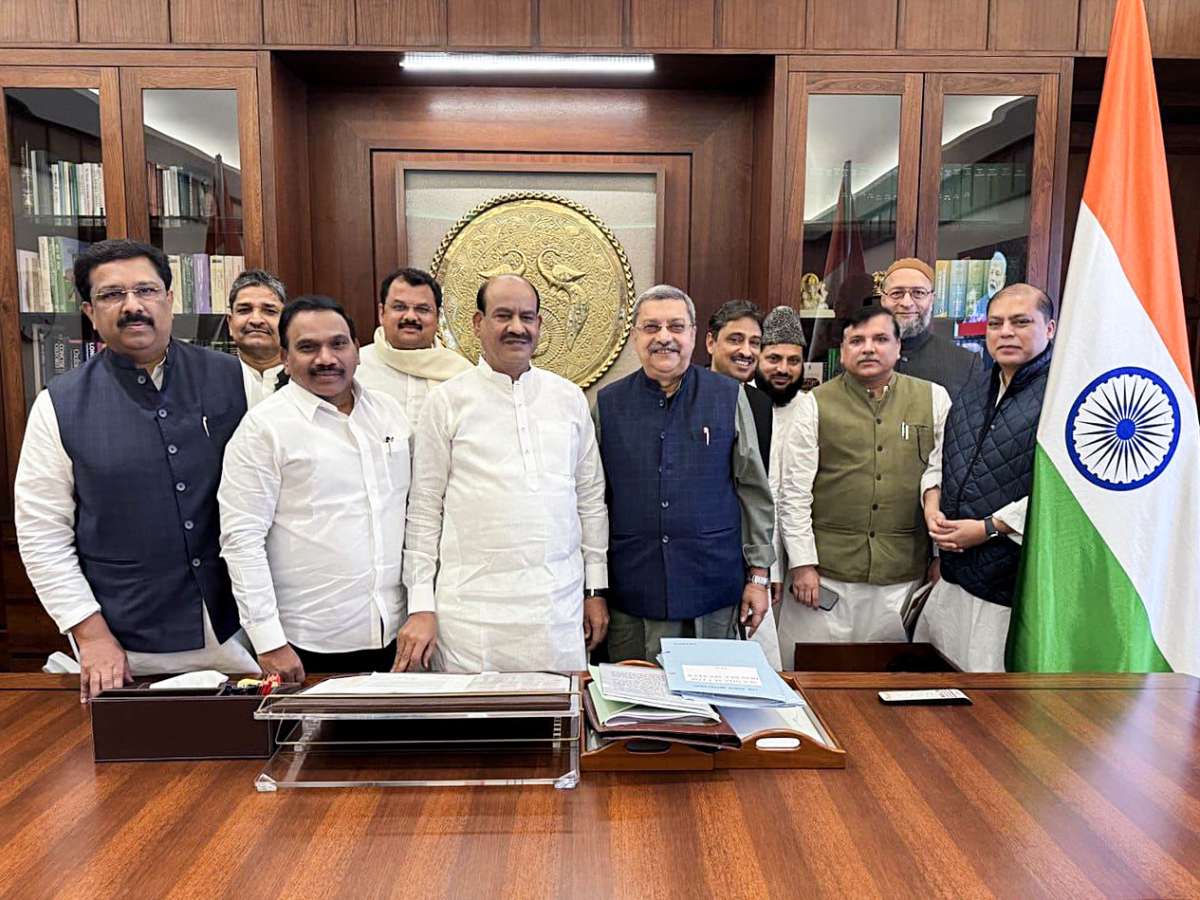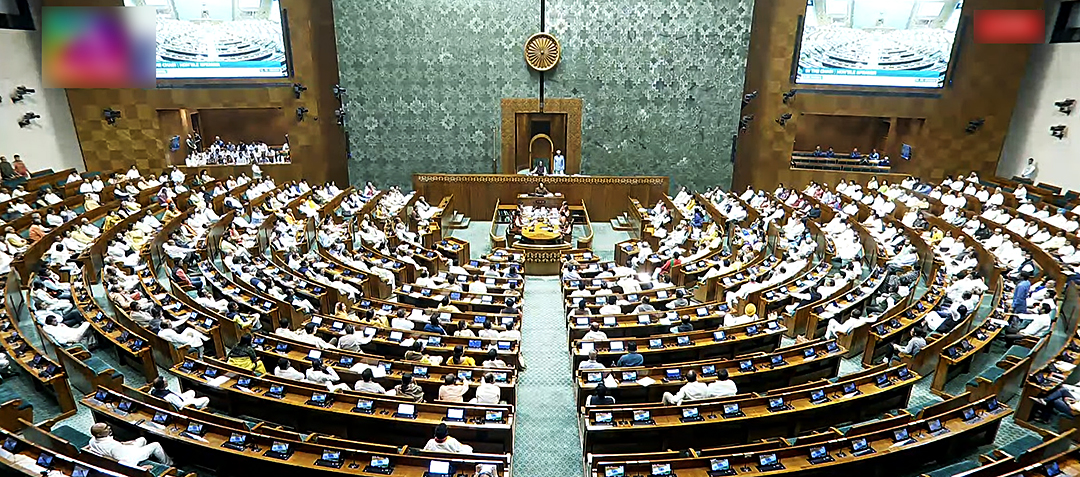Opposition members have been seeking an extension of the term of the joint committee to listen to more stakeholders…reports Asian Lite News
The bill to amend the Waqf Act is unlikely to be taken up in the winter session of Parliament, with the joint committee set up to examine it set to seek an extension to present its report.
Joint Parliamentary Committee chairman Jagdambika Pal said on Wednesday that he will move a resolution for extending the term of the panel, which is examining the Waqf (Amendment) Bill, 2024.
Opposition members have been seeking an extension of the term of the joint committee to listen to more stakeholders.
Jagdambika Pal said opposition members should not boycott the proceedings of the committee over their demands.
“In these three months, we had 29 meetings, more than 147 delegations came… We have given opportunity to all the organisations. That’s the mandate the JPC had… If they (opposition MPs) think that we need to hear some more people – the way shouldn’t be boycotting the meeting… I have listened to what all the members had to say, including Sanjay Singh, Kalyan Banerjee, Asaduddin Owaisi… I have an opinion that I will tomorrow move a resolution in the House for the extension of the tenure of JPC,” Jagdambika Pal said.
Jagdambika Pal and BJP MP Dilip Saikia would move the motion to extend time for the presentation of the Report of the Joint Committee on the Waqf (Amendment) Bill, 2024 up to the last day of the Budget Session, 2025.
Opposition MPs on Wednesday walked out of the Joint Parliamentary Committee (JPC) meeting, citing concerns that the committee had left many state boards unheard.
Jagdambika Pal earlier said that some members had spoken about the need to invite other stakeholders and the term of the panel should be extended.
“Today, Nishikant Dubey and other members raised that we have to invite and hear some other stakeholders, state officials…So, we feel that we should extension…I will consider this and then we will bring a resolution before Lok Sabha tomorrow or the day after,” he said.
“Today in the meeting, we posed questions to Ministry of Minority Affairs. They will answer those questions. We had a few questions that there are 123 properties of Govt of India in Delhi dating back to 1911…Later the Waqf Board laid its claim on those properties. So, for clarification on that Ministry of Urban Development and DDA will have to be called. Similarly, Odisha, UP, MP, Rajasthan, Bihar – a total of 6 states – where government properties are being claimed by the Waqf. So, we asked the Ministry’s Secretary today that we have not received the response on this…So, we will also have to call State’s Chief Secretaries or Secretaries of Minority Affairs in states,” he added.
Aparajita Sarangi said there was uproar concerning the possibility of submission of the report.
“The Opposition members staged a walkout and many of the ruling party members went out of the room to request them to come and join the deliberations. Today, we had a hearing of the Ministry of Minority Affairs and there were extensive deliberations on various amendments proposed in the Waqf Amendment Bill 2024. The uproar basically sprang from their request regarding the submission of the report. So, there was a lot of debate regarding this,” she said.
Sarangi said ruling party members also felt that there should be some kind of extension.
“So, I think some time is definitely required so it was unanimously resolved that the committee would be requesting the Lok Sabha Speaker for the extension in the date of the submission of the report by the committee up to the end of Budget Session of 2025,” she said.
Speaking to the media after leaving the meeting, AIMIM MP Asaduddin Owaisi said many stakeholders want to give their views.
“The mandate is that the report should be given on the 29th (of November). How can we give it? There is a procedure that must be followed, which has not been done. Most importantly, this committee hasn’t visited Bihar or West Bengal. There are many stakeholders we want to be heard. Why is this committee not allowing all the stakeholders to participate?”
Aam Aadmi Party (AAP) MP Sanjay Singh stated that any submission of report before hearing all stakeholders will be inappropriate.
“Until the report is finalised, all stakeholders are heard, and the JPC tour is completed, submitting a draft report is wrong. The Speaker had assured us that he would extend the JPC’s timeline… Yet, side-lining all these issues, you claim the draft report is ready for submission. The Delhi, Jammu and Kashmir, Punjab, and Uttar Pradesh governments have not been heard,” Singh said.
Trinamool Congress MP Kalyan Banerjee said some important stakeholders have not been called.
“The fundamental issue is this: only those associated with or close to the BJP were brought in, and days have been wasted. States with the largest Waqf properties, including Delhi, were not called. People have died in Sambhal over Waqf property issues, yet they are not taking these matters seriously,” he said.
Congress MP Gaurav Gogoi alleged that the procedure was biased.
“We raised two important questions: the assurances given by the Speaker (Lok Sabha) are not being fulfilled by the (JPC) chairman. There seems to be no balance between the government and the Speaker. I believe some senior Union minister is directing the chairman (of the JPC). Secondly, the process is incomplete. The chairman claims the report is ready, but we do not wish to be part of a biased procedure,” Gogoi said.
YSRCP MP Vijay Sai Reddy also called for consultation with more stakeholders.
“Before the agenda item was taken up for consideration, a significant number of members, particularly non-BJP members, requested the chairman (JPC) to extend the stipulated timeline. By the 29th (of November), the JPC will not be in a position to complete the proceedings. Many state Waqf boards and stakeholders have not been given the opportunity to present their views,” Reddy said.
Jagdambika Pal had said earlier this month that the report was ready, and they would hold clause-by-clause discussions on it.
The Waqf (Amendment) Bill, 2024, seeks to introduce sweeping reforms, including digitisation, stricter audits, greater transparency, and legal mechanisms to reclaim illegally occupied properties.
The Waqf bill was on the agenda of the government in the winter session. The panel, constituted in last session, was tasked to give its report by the last day of the first week of this session. (ANI)
ALSO READ: India Welcomes Israel-Lebanon Ceasefire


